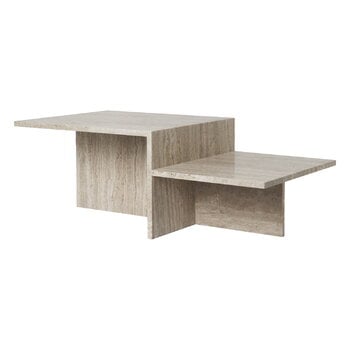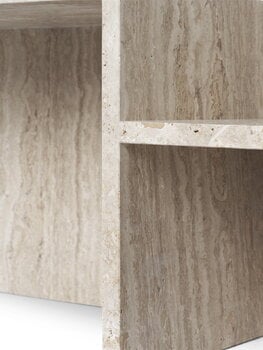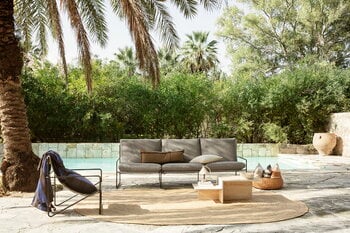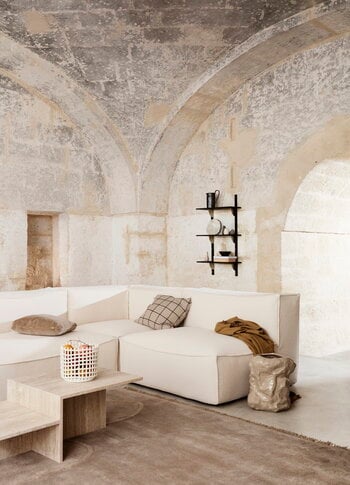ferm LIVING's Distinct coffee table was inspired by Japanese aesthetics. The table's sculptural design is based on opposites and creating complex structures using a single element. The coffee table’s unique look is created by joining Japanese minimalism with travertine’s natural texture and varying shade. The natural, sand-coloured limestone adds balance and softness to the geometric and robust structure of the Distinct coffee table.
ferm LIVING’s sophisticated Distinct coffee table will elevate any space. Create a unique centrepiece for the living room by styling the Distinct table with inspiring coffee table books and beautiful decor items.























